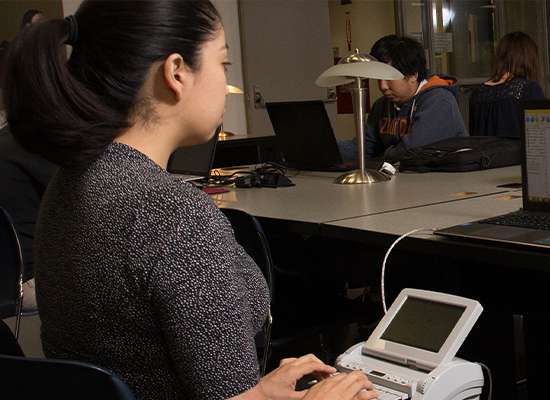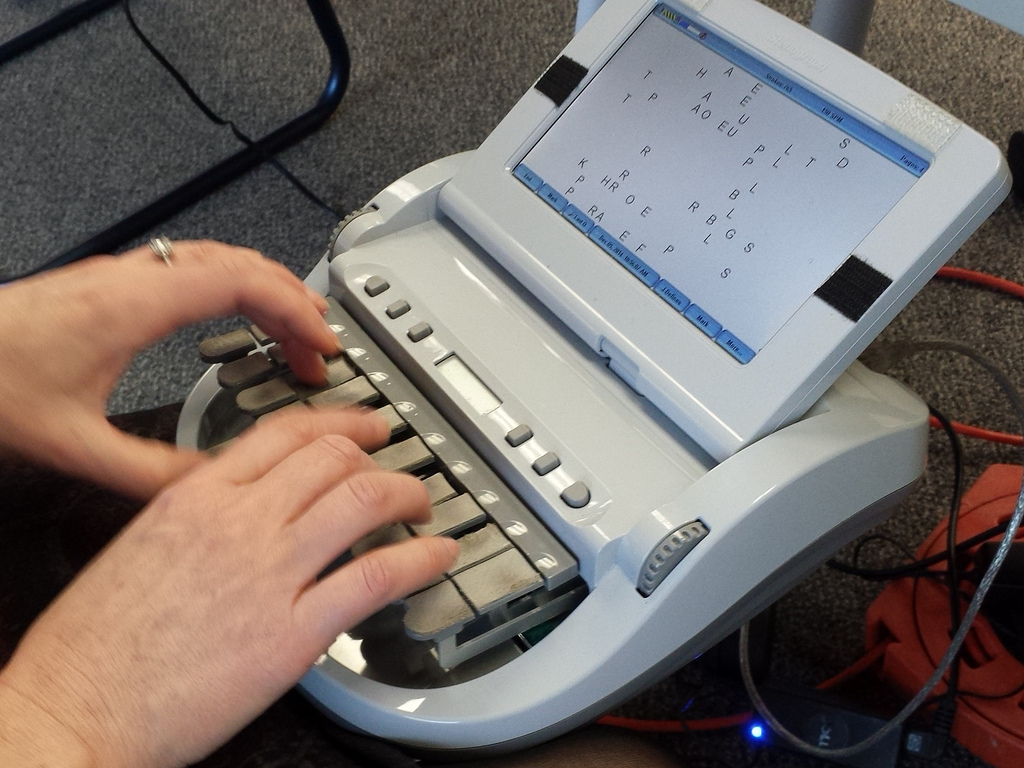How court reporting Is Providing Accuracy to Emotional and Complex Testimonies
How court reporting Is Providing Accuracy to Emotional and Complex Testimonies
Blog Article
Recognizing the Crucial Role of Court Reporting in Legal Procedures
Court coverage is frequently overlooked, yet it's necessary in legal procedures. You could not recognize how court reporters guarantee every word spoken is taped properly, influencing choices made by courts and courts. Their abilities and technology play a significant duty in maintaining the honesty of legal documents. Yet just what does the process involve, and exactly how has it advanced over time? Allow's explore the fundamental functions of court reporting and its significance in the lawful landscape.
The History of Court Coverage
Court coverage has an abundant history that dates back to ancient civilizations, where scribes used various methods to catch spoken words. The earliest types of shorthand arised in Greece around 400 BC, permitting thinkers and politicians to tape-record speeches swiftly. As you relocate via history, you'll find that the Romans adopted comparable techniques, improving them to record legal process. By the 16th century, modern-day shorthand systems started to materialize, allowing stenotype reporter to produce exact records successfully.
In the 19th century, the development of the typewriter reinvented the profession, making it easier to develop clear documents. The intro of steno makers in the 20th century even more advanced court coverage, allowing real-time transcription throughout trials. Today, stenotype reporter play a considerable role in lawful procedures, guaranteeing that every word talked in the courtroom is properly documented. Recognizing this history highlights the relevance of court coverage in keeping a reasonable lawful system.
The Skills Needed for Court Reporters
As a court reporter, you require strong keying skills to stay up to date with the fast-paced discussion of lawful proceedings. Your ability to listen diligently is equally as important, guaranteeing every word is recorded accurately. Grasping these abilities is vital to delivering exact and dependable transcripts.
Skillful Keying Abilities

Strong Paying Attention Skills
Solid paying attention abilities are vital for court reporters, as they should precisely catch talked words in actual time. This ability aids you set apart between audio speakers, understand legal jargon, and follow complex conversations. Ultimately, solid paying attention abilities make you a crucial property in lawful process, making certain clarity and precision in the court record.
The Modern Technology Behind Court Coverage
In the domain of legal proceedings, modern technology plays an essential duty in improving the accuracy and efficiency of court reporting. You're most likely knowledgeable about the traditional stenotype machine, yet modern stenotype reporter now use innovative software application that integrates with these equipments, enabling real-time transcription. This implies you can have instant accessibility to the transcript as the process unfold.
Digital audio recording is another technological improvement that's getting traction. It catches every talked word, guaranteeing absolutely nothing is missed. Some press reporters utilize voice acknowledgment software application, which can help streamline the transcription process, though it still calls for human oversight for accuracy.
In addition, cloud-based storage space allows very easy access and sharing of records, improving cooperation amongst legal teams. By leveraging these technologies, court press reporters can provide high-quality, timely documents that are important for the lawful process. Accepting this technology not just improves your understanding but likewise assures reliability in legal paperwork.
The Court Coverage Process

As lawful process unravel, the court reporting process becomes crucial in catching every detail properly. You'll locate that a court press reporter plays an important role by transcribing spoken words into composed message in real-time. When you enter the court, the reporter is currently prepared, furnished with specialized devices like stenographic makers and audio recording tools.
During the proceedings, the reporter listens attentively, typing out whatever said, from witness statements to attorneys' arguments. You may notice them stopping periodically to guarantee quality or to request for a repeat if something had not been clear. After the session, the reporter evaluates the transcript, making necessary edits for readability.
This entire procedure not just guarantees a complete document but also prepares you for future reference during allures or situation reviews. In the fast-paced atmosphere of a courtroom, the court reporting procedure is essential for keeping a precise account of events.
The Importance of Accuracy in Records
While a stenotype reporter's main duty is to transcribe spoken words, the precision of these transcripts is imperative for the stability of lawful procedures. When you're involved in a situation, you rely upon specific paperwork to understand the occasions and arguments offered. Any type of mistakes in transcription click this site can bring about misconceptions, misconceptions, or even wrongful judgments.
Exact transcripts assure that every detail is recorded, offering a reputable document for judges, lawyers, and juries. This degree of information is necessary during charms or when referencing previous statements. If a records includes errors, it can undermine the entire lawful process, possibly affecting results.
Moreover, precise records copyright the rights of all events involved, promoting justness and openness. Whether you're a legal representative preparing for trial or a witness showing on your statement, you can rely on that the court press reporter's skill in accuracy plays a significant function in your instance's success.
The Duty of Court Reporters in Different Lawful Setups
Court press reporters play a crucial role in various legal settings, from trials to depositions and legal hearings. You'll locate that their job guarantees every spoken word is precisely caught, which is critical for the legal process. Understanding how their duties vary throughout these settings can highlight their influence on the justice system.
Court Reporters in Tests
In any kind of lawful trial, you'll find that stenotype reporter play a vital function in catching the proceedings with accuracy and precision. They transcribe everything talked in the court room, ensuring that every word is recorded for future reference. This document comes to be essential for charms, enabling higher courts to assess the test's integrity. Court reporters must keep emphasis and speed, often using customized tools link to stay on par with fast-paced discussion. Their job sustains attorneys, judges, and courts by supplying an official account of testimonies and arguments. If discrepancies emerge, the records works as a reputable source to clarify what was claimed. Inevitably, stenotype reporter assist support the justice system, guaranteeing openness and responsibility throughout trials.
Depositions and Legal Hearings
Beyond tests, court reporters likewise play an essential function in depositions and lawful hearings. Court press reporters give real-time transcription solutions, permitting lawyers to adhere to along and deal with any type of problems quickly. In short, court reporters are essential in preserving the honesty and clarity of the legal document in depositions and hearings.
Future Fads in Court Coverage
As modern technology continues to progress, the future of court coverage guarantees to be shaped by innovative tools and practices that enhance accuracy and effectiveness. You'll likely see boosted use fabricated knowledge and real-time transcription solutions, simplifying the reporting procedure. These advancements can help you access transcripts much faster, which can be crucial for your legal techniques.
In addition, integrating video clip conferencing and remote reporting will end up being much more common, permitting you to get in touch with court press reporters from anywhere (court reporting). This flexibility can make depositions and hearings more obtainable, saving both time and resources
You'll additionally discover an emphasis on electronic recordkeeping, which simplifies the storage and retrieval of records. With cloud-based services, you'll have the capacity to share papers securely and team up with your lawful team in real-time.
Regularly Asked Concerns
What Is the Ordinary Income of a Court Reporter?
The typical income of a stenotype reporter differs by location and experience, yet you can expect it to vary from around $50,000 to $80,000 yearly. Several aspects affect this income, consisting of specialization and need.
How Do I Come To Be a Licensed Stenotype Reporter?
To become a qualified court reporter, you'll need to complete a court reporting program, pass a certification test, and gain practical experience. It's crucial to remain upgraded on industry standards and continuing education and learning requirements.
What Kinds of Instances Do Court Reporters Cover?
Court reporters cover different instances, including criminal tests, civil lawsuits, depositions, and settlement hearings. You'll locate them recording whatever, making certain precise documents for judges, lawyers, and parties included, recording every word talked in lawful settings.
Are Court Reporters Required to Have a Degree?
Yes, stenotype reporter generally require a level or certification in court coverage. Numerous programs supply specialized training, guaranteeing you gain the skills required for precise transcription and lawful paperwork in numerous setups.
Can Court Reporters Job From Another Location?

Report this page